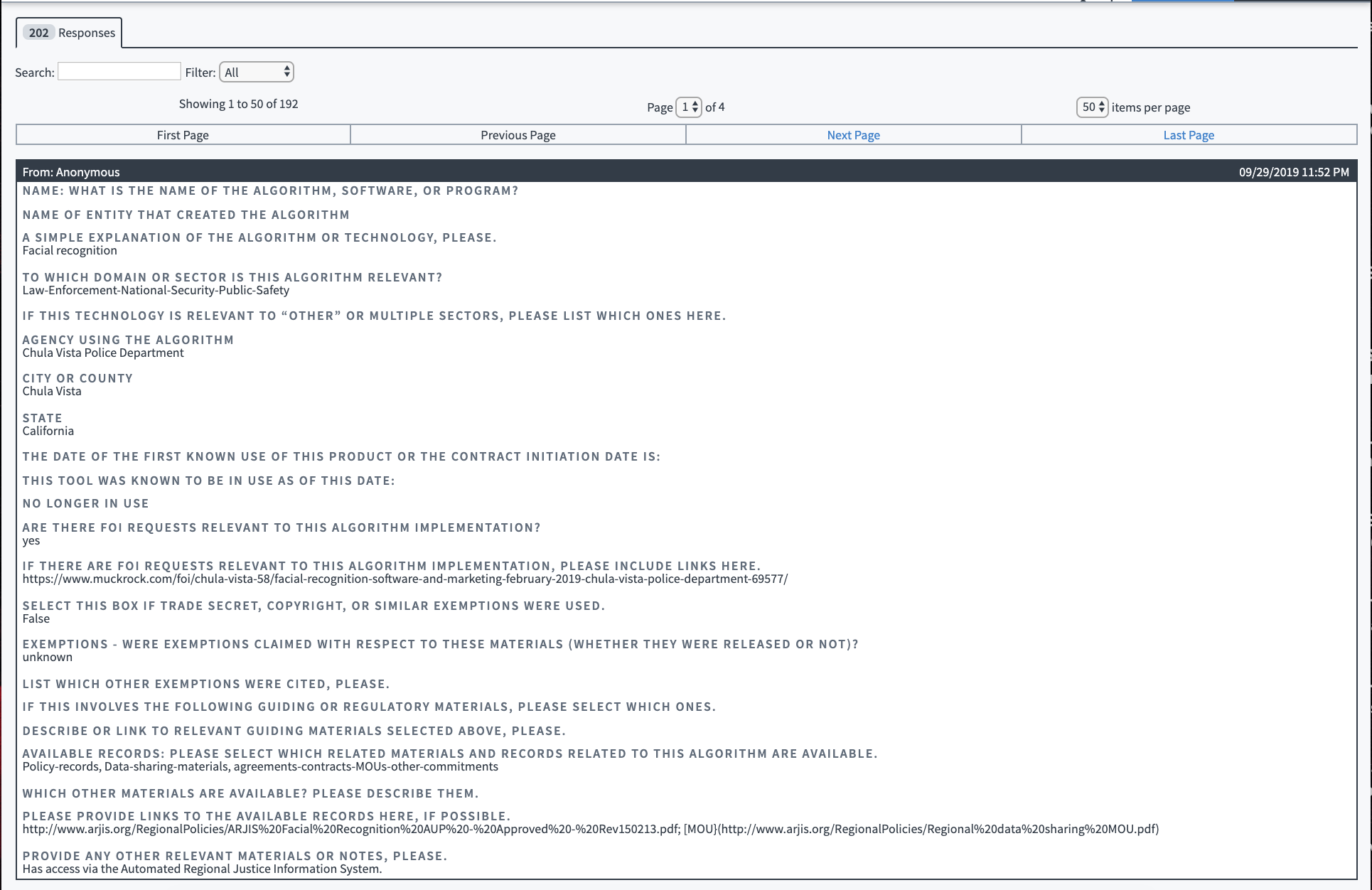What is the chance you, or your neighbor, will commit a crime? Should the government change a child’s bus route? Add more police to a neighborhood or take some away?
Every day government decisions from bus routes to policing used to be based on limited information and human judgment. Governments now use the ability to collect and analyze hundreds of data points everyday to automate many of their decisions.
Does handing government decisions over to algorithms save time and money? Can algorithms be fairer or less biased than human decision making? Do they make us safer? Automation and artificial intelligence could improve the notorious inefficiencies of government, and it could exacerbate existing errors in the data being used to power it.
MuckRock and the Rutgers Institute for Information Policy & Law (RIIPL) have compiled a collection of algorithms used in communities across the country to automate government decision-making.
Go right to the database.
We have also compiled policies and other guiding documents local governments use to make room for the future use of algorithms. You can find those as a project on DocumentCloud.
View policies on smart cities and technologies
These collections are a living resource and attempt to communally collect records and known instances of automated decision making in government.
How to use these resources
By collecting our records and knowledge in one place, we can save hundreds of hours in redundant work and effort, allow others to build on the research that’s already been done and encourage new investigations and calls for basic algorithmic accountability.
Each entry is specific to a particular implementation or pilot program we’ve learned about, either through our own reporting, previous reporting, or feedback from MuckRock users.
We are trying to capture as many of the following data points as possible.

Search of the database is currently conducted via the “Search” bar at the top of the list of entries.

Want to know what we have for entries in California? Type “California” in the search bar. Curious about facial recognition use? Try a “facial recognition” search.
Terms that you may want to try include:
This is a work-in-progress. Don’t underestimate how valuable we find your feedback. Let us know if you have suggestions for the kind of elements you’d like to see in search and the types of queries you’d like to make.
What can you find in this database
Each entry in this database contains some basic information: the name or type of algorithm used, the entity that created it, the agency we believe tested it, and the government sector most closely affected, like law enforcement or family services.

If we know when the algorithm was first used or is still in use we include that data too.

For each entry we’ve also tried to submit a records request for related material. You’ll find a link to that request and links to the types of documents we’ve been able to gather.

Finally,we have a section on each entry for this sort of miscellaneous information that can include related news articles or other notes on a particular implementation.
How can you contribute?
Whether you just happened across this page or you’re a journalist that’s been working on these issues - your input is so important to keeping this database alive and useful. Our database is built from the same form you can use to contribute.
I only have a second to help.
If you only have a second to let us know about an algorithm you’ve heard about, just drop us a note or a url via the “Drop us a link” field at the very top of the form. Hit submit, and that’s it! We’ll handle pulling out the relevant data points and trying to get useful records.
I have a few details for you.
If you want to take a first run through providing an entry to our database, do feel free to try to fill out the other fields. Each submission will be vetted by a MuckRock staff member before being made public available.
I see something wrong.
If something is out-of-date or otherwise incorrect in one of entries, please let us know! Send us an email, shoot us a direct message on Twitter or Facebook, or hit “Get Help” on any of our request pages.
Check it out.
Algorithms used to automate government decision-making.
Policies and guiding documents
Algorithmic Control is part of a joint research and reporting project from MuckRock and the Rutgers Institute for Information Policy and Law. Support for this project is provided by Rutgers, but the reporting is editorially independent. View the full database of requests, learn more about the project, or get in touch with the reporter.
Image via Shutterstock and National Science Foundation




